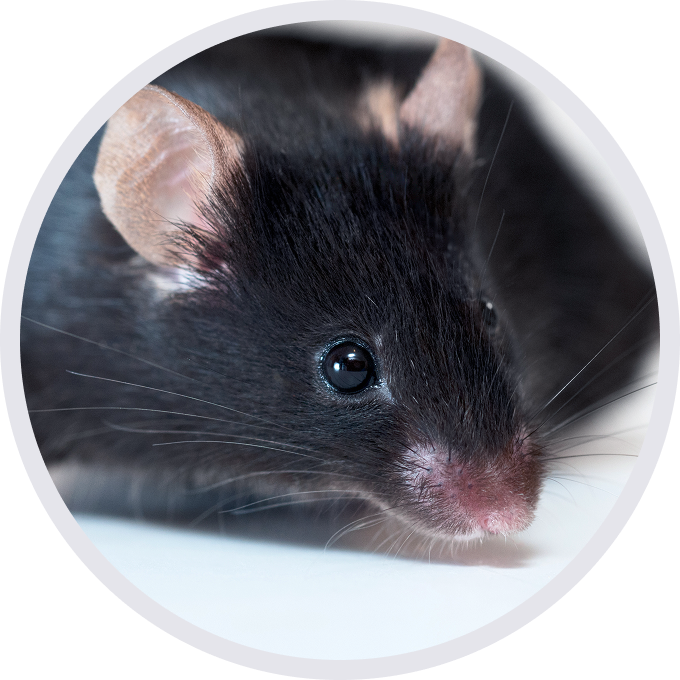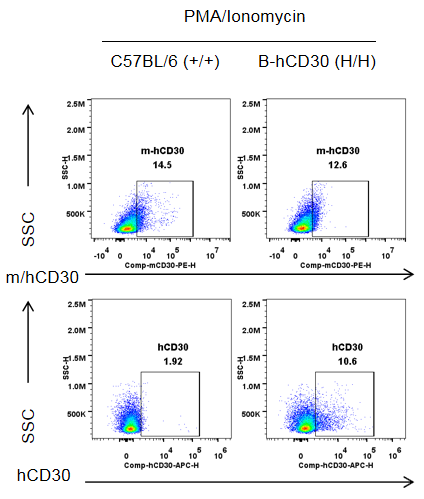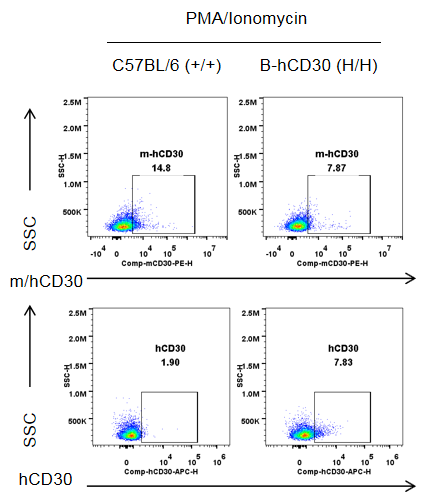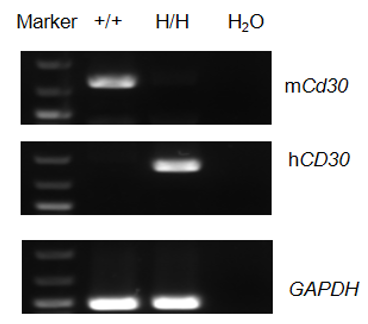


C57BL/6-Cd30tm1(CD30)Bcgen/Bcgen • 110888
| Product name | B-hCD30 mice |
|---|---|
| Catalog number | 110888 |
| Strain name | C57BL/6-Cd30tm1(CD30)Bcgen/Bcgen |
| Strain background | C57BL/6 |
| Aliases | TNFRSF8, Ki-1, D1S166E |
Gene targeting strategy for B-hCD30 mice.
The exons 1~9 of mouse Cd30 gene that encode the extracellular domain were replaced by human CD30 exons 1~11 in B-hCD30 mice.

Strain specific CD30 expression analysis in homozygous B-hCD30 mice by flow cytometry. Splenocytes were collected from wild-type C57BL/6 mice (+/+) and homozygous B-hCD30 mice (H/H) stimulated with PMA/Ionomycin in vitro, and analyzed by flow cytometry with anti-CD30 antibody. Anti-mouse CD30 antibody was cross-reactive between mouse and human. Combined with mRNA expression in wild-type and homozygous B-hCD30 mice, it can be proved that mouse CD30 was detectable in wild-type mice. HCD30 was exclusively detectable in the homozygous mice.

Strain specific CD30 expression analysis in homozygous B-hCD30 mice by flow cytometry. Splenocytes were collected from wild-type C57BL/6 mice (+/+) and homozygous B-hCD30 mice (H/H) stimulated with PMA/Ionomycin in vitro, and analyzed by flow cytometry with anti-CD30 antibody. Anti-mouse CD30 antibody was cross-reactive between mouse and human. Combined with mRNA expression in wild-type and homozygous B-hCD30 mice, it can be proved that mouse CD30 was detectable in wild-type mice. HCD30 was exclusively detectable in the homozygous mice.

Strain specific analysis of CD30 mRNA expression in wild-type C57BL/6 mice and B-hCD30 mice by RT-PCR. Mouse Cd30 mRNA was detectable only in splenocytes of wild-type C57BL/6 mice. Human CD30 mRNA was detectable only in homozygous B-hCD30 mice but not in wild-type mice.